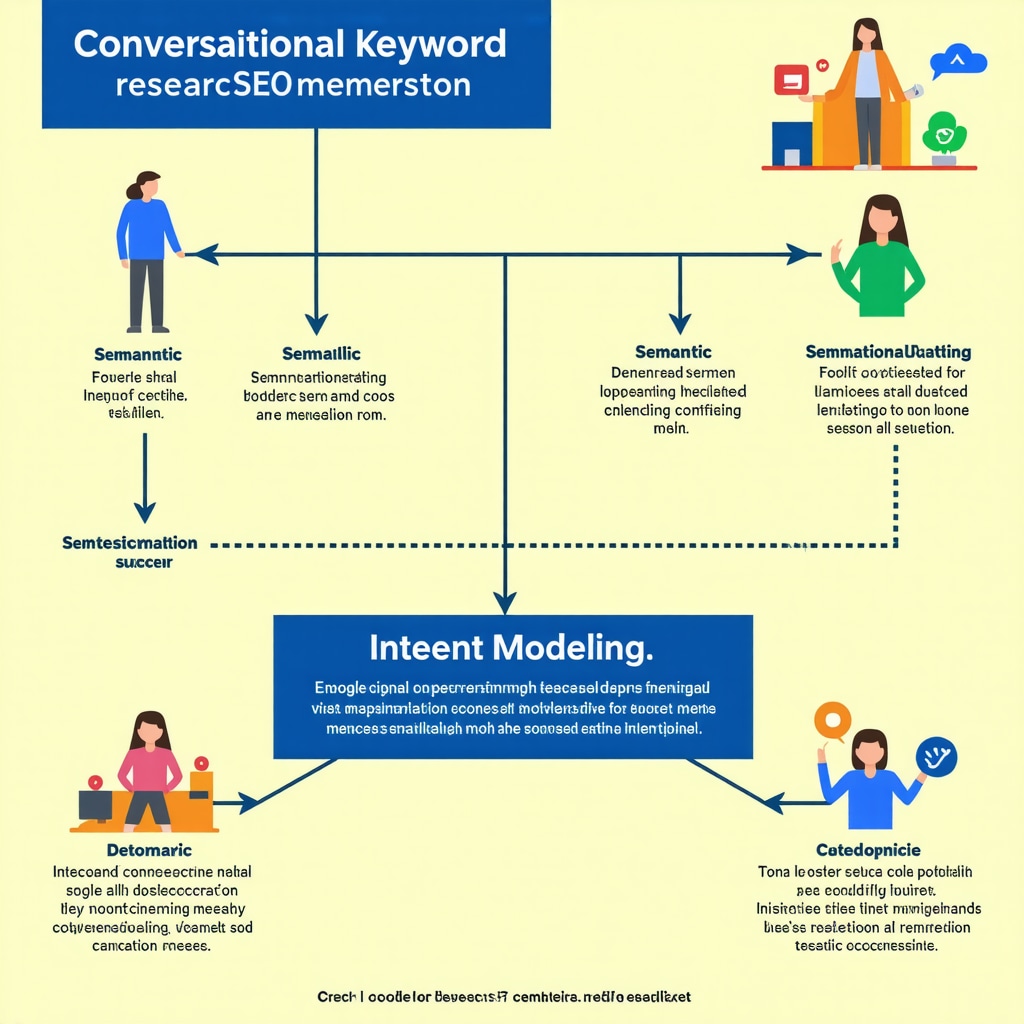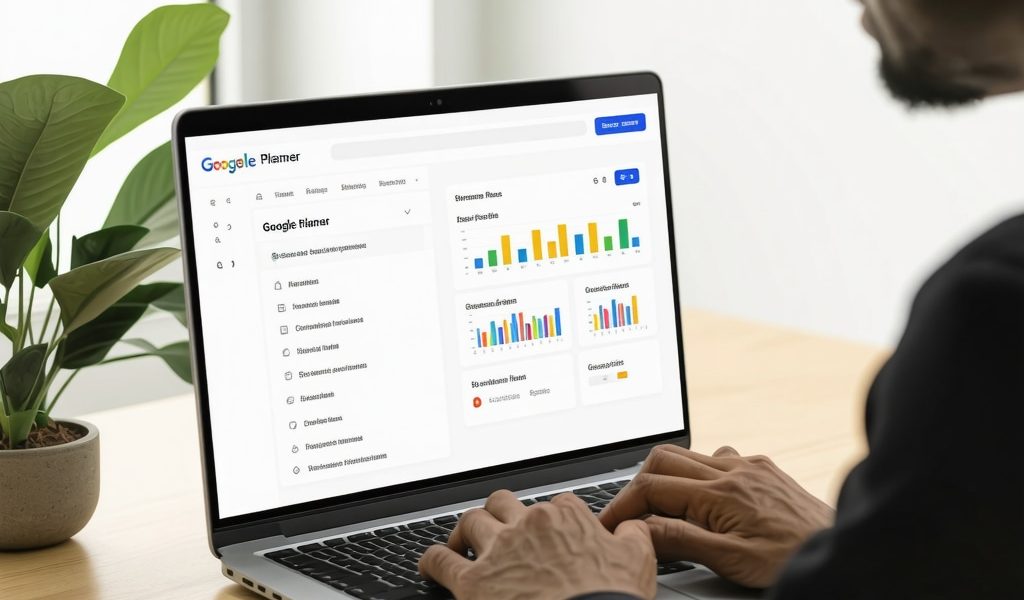Why Google Keyword Planner is Your New Best Friend for GMB Success
Imagine you're a detective, but instead of solving crimes, you're hunting for the exact phrases potential customers type into Google when searching for businesses like yours. Welcome to the world of Google Keyword Planner, a surprisingly powerful tool that can turbocharge your Google My Business (GMB) profile and help you dominate local search results.
Many small business owners overlook this gem, thinking it's just for big ad campaigns. But trust me, tapping into its keyword insights can illuminate what your audience craves, guiding your GMB optimization in ways that feel almost like mind reading.
Getting Your Hands Dirty: The Step-by-Step Keyword Treasure Hunt
First things first, you’ll need a Google Ads account. No worries, you don’t have to launch an ad campaign; setting up the account is your golden ticket. Once inside, navigate to the Keyword Planner under the "Tools & Settings" menu.
Here, you can either "Discover new keywords" or "Get search volume and forecasts." For GMB, start with discovering new keywords related to your business, location, and services. Plug in phrases your customers might use—think like a local!
Isn’t It Just About Keywords? Why Does Location Matter So Much?
Because local SEO thrives on context. Your Keyword Planner results will show search volumes and competition levels tailored to specific areas. This data means you can prioritize keywords with high local interest but low competition, giving you a tactical edge in your neighborhood’s digital battleground.
From Keywords to Action: Sprinkling Your GMB Profile with SEO Magic
Once you have your list, it’s time to weave these golden phrases naturally into your GMB business description, services, posts, and even Q&A sections. But beware of overstuffing—Google prefers authenticity.
Integrating these keywords helps Google understand your business better, boosting your chances to appear for relevant "near me" searches. If you want to deepen your knowledge, check out this comprehensive guide on optimizing your Google Business Listing.
Small Tweaks, Big Rewards: Don’t Underestimate the Power of Data-Driven SEO
By tracking keyword trends over time, you can adapt your GMB content strategy dynamically. For example, seasonal keyword spikes can guide timely posts or offers. This isn't guesswork; it's smart marketing backed by data.
And if you’re wondering how to keep pace with ever-changing local SEO landscapes, exploring expert services like GMB citation management might just be your next smart move.
Ready to Dig Deeper Into Local SEO Mastery?
I’d love to hear about your experiences using Google Keyword Planner or any quirky keyword finds that surprised you. Share your thoughts below and let’s turn the local SEO game on its head together.
For those who crave authoritative insight, Moz’s analysis of keyword tools reveals that Google Keyword Planner remains one of the most reliable sources for understanding searcher intent, making it indispensable for local SEO success.
Harnessing Seasonal Trends and User Intent for Superior GMB Optimization
While mastering Google Keyword Planner data is essential, truly excelling at GMB SEO requires understanding the nuanced intent behind those keywords. For instance, a surge in searches for “best pizza near me” during weekends or holidays reveals actionable insights: your GMB posts and offers should align with these patterns to attract timely visits.
Incorporating this dynamic approach means scheduling posts and promotions around predicted keyword volumes, which can be tracked effortlessly inside Keyword Planner’s forecasting tools. This data-driven strategy not only elevates your local search visibility but also enhances engagement by delivering relevant content when your audience is actively searching.
Optimizing GMB Attributes: Beyond Keywords to Enhanced User Experience
Google emphasizes user experience signals, and GMB attributes such as service options, accessibility features, and operational hours are vital touchpoints. Make sure these attributes reflect your real-world offerings accurately and integrate local keywords within your service descriptions. This holistic optimization complements your keyword strategy, reinforcing credibility.
For a thorough methodology on attribute optimization, explore this detailed resource on how to optimize your Google Business Listing effectively.
Could Integrating Voice Search Queries Transform Your GMB Strategy?
With the rise of voice-activated assistants, local search queries are becoming more conversational and question-based. How can you adapt your Keyword Planner research to capture these long-tail voice queries? Consider expanding your keyword list to include natural language phrases and FAQs that users might speak rather than type.
For example, instead of targeting “car repair shop,” optimize for “where can I find a reliable car repair shop near me?” This shift requires a more refined content approach within your GMB Q&A and posts to address these specific user intents.
Leveraging Expert Tools and Services for GMB Citation and Ranking Enhancement
To stay competitive, many businesses turn to specialized citation management services that ensure NAP (Name, Address, Phone Number) consistency across local directories. As highlighted by Moz’s authoritative guide on local SEO, consistent citations significantly bolster local search rankings.
For those seeking expert assistance, consider exploring professional GMB citation services which streamline this process and provide measurable improvements in local visibility.
Taking Your GMB Profile to the Next Level: Continuous Monitoring and Adaptation
Effective GMB SEO isn’t a one-off task; it demands ongoing monitoring and agile adaptation. Tools that track your GMB performance metrics can help identify which keywords and content resonate most with your local audience. Regularly updating your profile based on these insights ensures you maintain a competitive edge.
Learn more about tracking and optimizing your GMB performance with this comprehensive guide on how to track GMB performance for maximum local SEO impact.
Join the Conversation: What’s Your Most Effective GMB Keyword Strategy?
Have you discovered unique keywords or tactics that transformed your local search rankings? Share your experiences in the comments below or connect with fellow business owners to exchange insights. Your contribution could spark new ideas and help others master their GMB optimization journey.
Decoding Semantic Search: Elevating Your GMB with Contextual Intelligence
Google’s algorithm no longer just matches keywords—it interprets the underlying meaning behind search queries. This evolution towards semantic search means your Google My Business profile must transcend simple keyword stuffing and embrace context-rich content that aligns with user intent.
To capitalize on semantic search, focus on integrating related concepts and synonyms naturally within your GMB descriptions, posts, and Q&A sections. For instance, if you run a boutique coffee shop, including terms like “artisan brews,” “locally sourced beans,” and “specialty espresso” alongside your primary keywords creates a web of semantically linked phrases that Google can associate with your business.
Moreover, leveraging structured data markup where possible can help Google better understand your offerings and services, enhancing your chances of appearing in rich results such as knowledge panels or featured snippets.
How Can Intent Modeling Refine Your GMB Keyword Strategy for Maximum Impact?
Intent modeling involves categorizing keywords based on the user’s purpose—informational, navigational, transactional, or commercial investigation. Understanding the dominant intent behind local search queries empowers you to tailor your GMB content precisely.
For example, a search like “best vegan restaurants near me” is transactional, signaling readiness to visit or order. Your GMB posts should respond with promotions, menu highlights, or testimonials. Conversely, “how to make vegan desserts” is informational, which suggests adding educational posts or FAQs to establish authority and trust.
By segmenting keywords and aligning content with intent, you not only improve your ranking but also enhance user engagement and conversion rates.
Harnessing Latent Semantic Indexing (LSI) Keywords: The Subtle Art of Depth and Diversity
Latent Semantic Indexing (LSI) keywords are thematically related terms that support your primary keywords, enriching your content’s contextual relevance. Incorporating these into your GMB profile can dramatically improve your local SEO footprint without triggering penalties associated with keyword stuffing.
To discover effective LSI keywords, consider tools such as LSI Graph or even Google’s “People also ask” and related searches sections. Integrate these keywords naturally within your business description, service lists, and especially in your GMB posts and Q&A responses.
This layered semantic approach signals to Google a comprehensive understanding of your niche, boosting your profile’s authority and local relevance.
Advanced GMB Content Architectures: Mapping User Journeys Through Local SEO Funnels
Traditional GMB optimization focuses on static information and sporadic posts. However, adopting a content architecture perspective—designing your GMB content to guide users through awareness, consideration, and decision stages—can significantly elevate engagement.
Start by analyzing your most valuable local customer personas and mapping their typical search behaviors. Develop a series of sequential posts, FAQs, and offers that address their evolving questions and needs during their buyer’s journey.
For example, initial posts might answer common questions like “What makes our bakery unique?” followed by testimonials or event announcements, culminating in time-sensitive discounts or booking prompts.
Coupling this with data from Google Keyword Planner’s trend forecasts allows you to time your content deployment perfectly, maximizing impact.
What Metrics and Tools Should Experts Use to Measure Semantic and Intent-Driven GMB Success?
Beyond basic Google My Business insights, advanced practitioners employ tools like Google Search Console, BrightLocal, and SEMrush to track keyword rankings, user behavior, and click-through rates at a granular level.
Monitoring changes in your profile’s visibility for intent-specific queries, as well as engagement metrics on posts and Q&A interactions, helps refine your strategy iteratively. Combining this with A/B testing of content formats and messaging can unveil what truly resonates with your local audience.
For deeper learning, Search Engine Land provides an authoritative analysis on semantic search trends, an excellent resource for those ready to elevate their GMB expertise.
Ready to revolutionize your local SEO approach by mastering semantic frameworks and intent modeling? Dive into these advanced strategies and join the conversation with fellow experts to share insights and breakthroughs.
Unlocking the Power of Conversational Keywords for Next-Level GMB Optimization
In the evolving landscape of local search, the rise of voice assistants and natural language queries demands a shift from traditional keyword targeting to conversational SEO. This means embracing how real people speak, ask questions, and seek information. Google Keyword Planner remains an invaluable tool here, but the focus must expand to include long-tail, question-based phrases that reflect user intent more authentically.
For example, rather than focusing solely on “plumbing services,” optimizing for queries like “who offers emergency plumbing near me at night” or “how to fix a leaking faucet quickly” captures nuanced user needs that drive higher engagement and conversion. Integrating these conversational keywords into your Google My Business Q&A, posts, and descriptions creates a richer, more user-centric profile that resonates with both search engines and customers.
How Can You Effectively Identify and Incorporate Voice Search Queries Into Your GMB Profile?
Start by mining Google Keyword Planner for question-format keywords and leveraging tools like AnswerThePublic or AlsoAsked to discover popular voice query patterns. Then, craft detailed, natural responses that anticipate these queries within your GMB Q&A and posts sections. This approach not only enhances your semantic relevance but also positions your GMB profile as a trusted local authority.
For a comprehensive strategy, explore how to optimize your Google Business Listing effectively, which offers actionable insights on merging keyword research with user intent frameworks.
Semantic SEO and Structured Data: Building a Context-Rich GMB Ecosystem
Beyond keywords, semantic SEO invites businesses to paint a holistic picture of their offerings through contextually linked terminology and structured data markup. Using schema.org vocabulary on your website and aligning it with your GMB attributes signals to Google the relationships between your services, products, and customer benefits.
This semantic layering helps Google present your business in enhanced search features like knowledge panels and rich snippets, amplifying your visibility. For instance, a local bakery could leverage schema markup to highlight “artisan breads,” “gluten-free options,” and “custom cakes,” weaving a semantic web that elevates their local search prominence.
Strategic Intent Modeling: Tailoring GMB Content to Buyer Journey Stages
Intent modeling refines your keyword and content strategy by categorizing search queries into informational, navigational, transactional, or commercial investigation types. By understanding where your potential customers are in their decision-making process, you can tailor your GMB posts, offers, and FAQs to meet those specific needs.
For example, transactional queries like “book a local yoga class” should trigger clear call-to-action posts with scheduling links, while informational searches such as “benefits of hot yoga” invite educational content that builds trust and brand authority.
What Tools Can Experts Use to Track and Optimize Intent-Driven GMB Content Performance?
Advanced analytics platforms like Google Search Console, BrightLocal, and SEMrush offer granular insights into keyword rankings, search intent performance, and user engagement metrics. Tracking metrics such as click-through rates on specific Q&A entries or posts aligned with transactional queries enables fine-tuning of your content strategy.
Additionally, A/B testing different messaging styles and content formats on your GMB profile can reveal what resonates most effectively with your local audience. To deepen your expertise, Search Engine Land’s authoritative analysis on semantic search is an excellent resource for mastering these advanced SEO concepts.
Integrating Citation Management with Semantic and Intent Strategies for Local SEO Dominance
While semantic and intent-driven optimizations elevate your GMB profile, citation consistency remains the backbone of local SEO authority. Expert citation management services ensure your NAP (Name, Address, Phone number) data is accurate and consistent across all directories, reinforcing trust signals to Google.
Combining these citation best practices with a semantically rich GMB profile creates a formidable local SEO presence. Explore professional GMB citation services to streamline this essential aspect of your local marketing strategy.
Embracing Continuous Learning and Community Engagement to Sharpen Your GMB Edge
Local SEO is a dynamic field where algorithms and user behaviors constantly evolve. Staying ahead requires not only using advanced tools but also engaging with the community of SEO professionals and local business owners who share insights and breakthroughs.
Have you experimented with conversational keywords or intent modeling in your GMB strategy? Share your experiences, challenges, or success stories in the comments below. Your insights might inspire others and contribute to a richer dialogue on mastering local SEO.
For those eager to build a solid foundation and explore related topics, visiting understanding local SEO for small businesses is a perfect starting point.

Expert Insights & Advanced Considerations
Embrace Semantic Richness Beyond Basic Keywords
Google’s understanding of search queries has evolved to prioritize semantic context over mere keyword repetition. For your Google My Business profile, this means integrating related concepts, synonyms, and naturally flowing language that reflect the genuine intent of local searchers. Leveraging Latent Semantic Indexing (LSI) keywords and structured data markup can dramatically elevate your profile’s relevance and visibility, especially in competitive local markets.
Intent Modeling as a Strategic Framework
Classifying your keywords by user intent—informational, navigational, transactional, or commercial investigation—enables you to tailor your GMB content precisely. This precision not only improves rankings but also significantly boosts user engagement and conversion by addressing the specific needs and questions customers have at different stages of their buyer journey.
Conversational and Voice Search Optimization is the New Frontier
With the surge in voice-activated searches, optimizing for conversational, question-based long-tail keywords is no longer optional. Tools like Google Keyword Planner combined with resources such as AnswerThePublic help uncover natural language queries that customers verbally express. Embedding these phrases in your GMB Q&A and posts aligns your profile with modern search behaviors and improves local search prominence.
Continuous Data-Driven Adaptation Fuels Sustained Success
Local SEO dynamics are fluid; therefore, ongoing monitoring of keyword trends, seasonal fluctuations, and user engagement metrics is essential. Using advanced analytics tools to track performance and iteratively refine your GMB content ensures your profile remains optimized for emerging search patterns and competitive shifts.
Curated Expert Resources
Moz’s Keyword Research Guide: A definitive resource for understanding keyword intent and advanced research techniques, essential for crafting nuanced GMB keyword strategies. (moz.com)
Search Engine Land on Semantic Search: An insightful analysis of semantic search trends and how they reshape local SEO approaches. Ideal for experts seeking to deepen their understanding of context-driven optimization. (searchengineland.com)
Ranking SEO GMB Comprehensive Guides: From citation management to advanced keyword strategies, these guides offer actionable insights tailored specifically for Google My Business optimization. (rankingseogmb.com)
AnswerThePublic: A powerful tool for discovering natural language and voice search queries, ideal for identifying conversational keywords to enrich your GMB profile.
BrightLocal & SEMrush Analytics: These platforms provide granular data on keyword rankings, user behavior, and local SEO performance metrics crucial for iterative optimization.
Final Expert Perspective
The journey to mastering Google Keyword Planner for Google My Business SEO is one of continual refinement and strategic depth. Moving beyond simple keyword insertion to embrace semantic richness, intent-driven content, and conversational query optimization positions your GMB profile as a local authority. Data-driven agility ensures your strategy adapts seamlessly to evolving search behaviors and market competition. For those committed to local SEO excellence, integrating these advanced methodologies will unlock sustainable growth and heightened visibility.
Explore more about how to optimize your Google Business Listing effectively and join the conversation by sharing your expert insights or success stories. Your contribution enriches the community and sharpens our collective edge in the ever-competitive local SEO arena.




I really appreciate how the post highlights the detective-like role we play when using Google Keyword Planner for GMB success. It’s fascinating to think that this tool isn’t just for paid ads but can unlock precise insights into what local customers are actually searching for. I’ve personally found that focusing on location-specific keywords with manageable competition made a noticeable difference for my small coffee shop’s visibility. One thing I’m curious about is balancing authentic keyword integration without making the descriptions sound forced. Have others experimented with naturally weaving in conversational keywords, especially for voice search queries? I’ve started to include more question-based phrases in our Q&A section, like “Where can I find gluten-free coffee options near me?” and noticed some upward trends in discovery. Still, I’m always looking for new tips on maintaining that delicate mix of SEO efficiency and genuine customer engagement. How do you ensure your GMB profile feels authentic while still optimized?